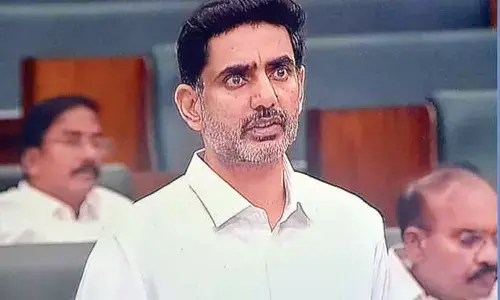Wicked tongue: A new normal in politics

Times are fast changing. This is one word we keep hearing. In terms of growth of technology, we have changed from human intelligence to Artificial Intelligence. In contrast, we have changed from remembering at least 10 telephone numbers to forgetting our own mobile numbers, thanks to our increasing dependence on technology. Everything is being stored in clouds.
True, times are changing. There was a time when many politicians used to read a lot and speak sense. Scholastic debates were the order of the day during legislative sessions – sans ruckus or pandemonium. Now, one hardly hears what is being said amid a flurry of charges and counter-charges. Cacophony reigns supreme – both inside and outside Parliament or state legislatures. Abuse, even physical assaults are not uncommon these days. 'Yes,' times have changed, from humble door-to-door visits by netas to their cronies now waving crispy notes or showing muscle power to entice or intimidate voters. No longer the candidature of a candidate matters now. Caste, community and other considerations are in full play. Whither the enlightening speeches of intellectual netas and their subtle and veiled swipes at their rivals?
Now, leaders across party lines take pride in foul language, not just during election campaigns, but on daily basis. We have any number of examples in the last two decades where political leaders, even senior leaders, making sexist and derogatory remarks. No one is any longer restrained in speech or behaviour, we might dare say. They take to massive protests, burning of effigies and use of stronger cuss words at the drop of a hat. There was a time when even a sarcastic remark in Parliament or Assembly was seriously objected to by the Speaker and the member was made to apologise. But now profanity has become the fashion both inside and outside the legislatures. Speakers seem to no longer assert themselves, for fear of offending the ruling party leaders.
An apt question is why the politicians use cuss words. According to San Diego Professor Ben Bergen, "When you hear profanity your body reacts, and it reacts in a strong way." Bergen adds, "You release adrenaline, you start to sweat, your heartrate increases, BP increases, your pupils dilate, you are ready to fight or to flee." "Politics is the art of profanity." This phenomenon is not exclusive to India. Even prominent religious scholars are unable to infuse sense into bitter politicians. Abusive language by the opposition parties in India is reflective of the shameful levels to which they can stoop to smear the image of those in power. In Madhya Pradesh, senior Congress leader Kamal Nath's "item" remarks against BJP leader Imarti Devi during bypoll in MP's Dabra is one such example. We have a long list of leaders who let their tongue slip. The recent comment made by Telangana BJP president Bandi Sanjay against K Kavitha, MLC and daughter of Chief Minister K Chandrashekar Rao, is no less sexist. These days it has become a fashion for all leaders to make some comment and try to justify it, saying it is local slang. Alas, how much have the times changed and are changing? Let's hope soon we will be able to say 'Yes' times have changed for the better.








